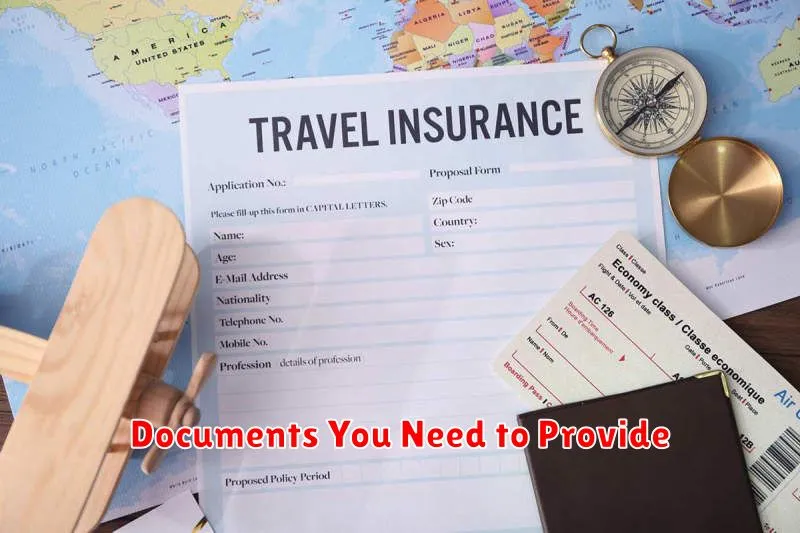Trip cancellations can be a traveler’s worst nightmare, disrupting carefully laid plans and potentially leading to significant financial losses. From unforeseen medical emergencies to severe weather events, the reasons for needing to cancel a trip are numerous. Understanding the vital role of travel insurance in mitigating these risks is crucial for anyone planning a trip, whether a short weekend getaway or an extended international adventure. Travel insurance can provide a financial safety net, protecting you from the costs associated with trip cancellations and other travel-related disruptions. This article will delve into the specifics of how travel insurance can protect you in the event of a trip cancellation, offering insights into coverage options, claim processes, and the importance of choosing the right policy.
Navigating the complexities of trip cancellation can be daunting. With various policies offering different levels of coverage, understanding what to look for is essential. This article will explore the various scenarios covered by travel insurance, including trip cancellations due to illness, injury, family emergencies, and unforeseen circumstances like natural disasters or political unrest. We will also discuss the importance of understanding the terms and conditions of your travel insurance policy, ensuring you’re adequately prepared for any potential trip disruptions. By examining the benefits of travel insurance in the context of trip cancellations, travelers can make informed decisions and embark on their journeys with greater peace of mind, knowing they are protected.
What Is Trip Cancellation Insurance?
Trip cancellation insurance is a type of travel insurance that helps protect you from financial losses if you have to unexpectedly cancel your trip. It can reimburse you for pre-paid, non-refundable expenses such as airfare, hotel accommodations, tours, and other travel arrangements. Common reasons for covered cancellations often include sudden illness or injury (to you, a travel companion, or a close family member), severe weather disrupting travel, or unforeseen events like jury duty.
Coverage varies depending on the specific policy you purchase. Some policies offer a broader range of covered reasons for cancellation, while others are more restrictive. It’s crucial to carefully review the policy details to understand what is and isn’t covered. For example, some policies might cover pre-existing medical conditions under specific circumstances, while others may exclude them entirely. Consider the potential risks associated with your trip and choose a policy that adequately addresses those concerns.
Trip cancellation insurance is different from travel insurance, although they are often sold together. Travel insurance typically encompasses a wider range of coverage, including trip interruption, medical expenses incurred while traveling, lost baggage, and emergency evacuation. While trip cancellation insurance focuses solely on the pre-trip period and covering those pre-paid costs should you have to cancel, travel insurance often covers issues arising both before and during your trip.
Covered and Non-Covered Events
This document outlines the events covered and not covered by this policy. Understanding these distinctions is crucial for ensuring proper coverage and avoiding claim denials. Please review the following information carefully.
Covered Events generally include unforeseen incidents such as accidental damage, fire, theft, and certain natural disasters (as specified in the policy details). For example, damage caused by a burst pipe or a lightning strike would typically be covered. Specific examples of covered events can be found in the policy documentation.
Non-Covered Events typically include pre-existing conditions, intentional acts, negligence, gradual deterioration, and certain natural disasters (like floods or earthquakes, unless specifically included). For instance, damage resulting from a lack of proper maintenance or intentional damage would not be covered. A comprehensive list of exclusions is detailed in the policy documentation and should be reviewed thoroughly.
How to File a Cancellation Claim
Filing a cancellation claim involves several key steps. First, review your policy or contract to understand the specific terms and conditions related to cancellations, including deadlines and required documentation. Identify the reason for cancellation and gather any supporting evidence, such as medical records, travel advisories, or other relevant documentation. This evidence will strengthen your claim. Finally, contact the provider (e.g., airline, hotel, insurance company) to initiate the cancellation process. Clearly explain your reason for cancellation and provide all necessary documentation.
When contacting the provider, be sure to obtain a confirmation or reference number for your cancellation request. This will be essential for tracking your claim and following up if necessary. Keep records of all communication, including emails, letters, and phone call details. Be polite and professional in your interactions, even if you are frustrated with the situation. Patience and persistence are often key to successfully navigating the cancellation process.
If your initial claim is denied, don’t give up. Review the denial reason carefully. If you believe the denial is unwarranted, you may have options to appeal the decision. Consult the provider’s terms and conditions for the appeal process, or seek advice from a consumer protection agency if needed. Documenting every step of the process will be crucial if you need to escalate the claim further.
Top Providers for Trip Protection
Choosing the right trip protection plan is crucial for a worry-free travel experience. Reliable providers offer coverage for unexpected events like trip cancellations, interruptions, medical emergencies, and lost baggage. Evaluating factors such as coverage limits, benefit options, and customer service reputation is essential for selecting the best plan to meet your individual needs.
Several highly-rated companies consistently stand out in the travel insurance market. These providers offer comprehensive plans with varying levels of coverage and optional add-ons, like adventure sports protection or rental car damage waivers. Comparing quotes and policy details from different providers can help you find the most suitable and cost-effective option for your trip.
Remember to read the policy details carefully before purchasing, paying close attention to exclusions and limitations. Understanding the terms and conditions will ensure you’re fully aware of what is and isn’t covered by your chosen trip protection plan.
Documents You Need to Provide

To ensure a smooth and efficient process, please provide the following required documents: A valid government-issued photo identification, such as a driver’s license or passport. Proof of address, which can include a recent utility bill, bank statement, or lease agreement. And finally, any relevant supporting documentation specific to your request.
Providing complete and accurate documentation will expedite the review of your application. Incomplete submissions may result in delays or rejection. Please ensure all documents are legible and clearly display all necessary information. If you have any questions about acceptable document types, please contact us before submitting your application.
You can submit these documents electronically as PDF files or provide physical copies. If submitting physical copies, ensure they are clear and legible photocopies. Do not send original documents unless specifically requested.
Dealing with Non-Refundable Bookings

Non-refundable bookings offer attractive discounts, but come with inherent risks. It’s crucial to understand the terms and conditions before committing to a non-refundable reservation. Carefully consider the possibility of unforeseen circumstances that might necessitate a change in your plans. Travel insurance can sometimes offer protection against these situations, so investigate relevant policies if you are concerned about potential disruptions.
If you need to cancel or modify a non-refundable booking, contact the vendor (hotel, airline, etc.) immediately. While a refund is unlikely, they may offer vouchers, credits, or allow you to change the dates of your booking for a fee. Flexibility on your part can improve the chances of a positive outcome. Be polite and persistent, clearly explaining your situation. Remember that policies vary between vendors, so referring back to the specific terms of your booking can be helpful.
Sometimes, external factors beyond your control might force a cancellation. In such cases, depending on the circumstance and the vendor’s policies, you might be eligible for some form of compensation. Examples include extreme weather events or natural disasters. Keep detailed records of any communication with the vendor and supporting documentation related to the reason for cancellation. These records will be essential if you need to escalate the matter or file a claim with your travel insurance provider.
Planning Ahead for Flexibility
Flexibility is crucial in navigating today’s dynamic environment. Proactive planning allows for adaptation to unexpected changes, minimizing disruptions and maximizing opportunities. Considering potential challenges and developing contingency plans ensures a resilient approach to achieving goals, whether personal or professional.
Effective planning involves identifying key priorities and allocating resources accordingly. This includes setting realistic timelines, establishing clear communication channels, and building in buffers for unforeseen delays. By anticipating potential roadblocks and developing alternative solutions, you can maintain momentum and avoid costly setbacks.
Embracing a flexible mindset is essential to successful planning. This requires a willingness to adjust strategies and re-evaluate priorities as circumstances evolve. Regularly reviewing and refining your plans allows you to stay agile and responsive to new information, ultimately increasing your chances of success.

